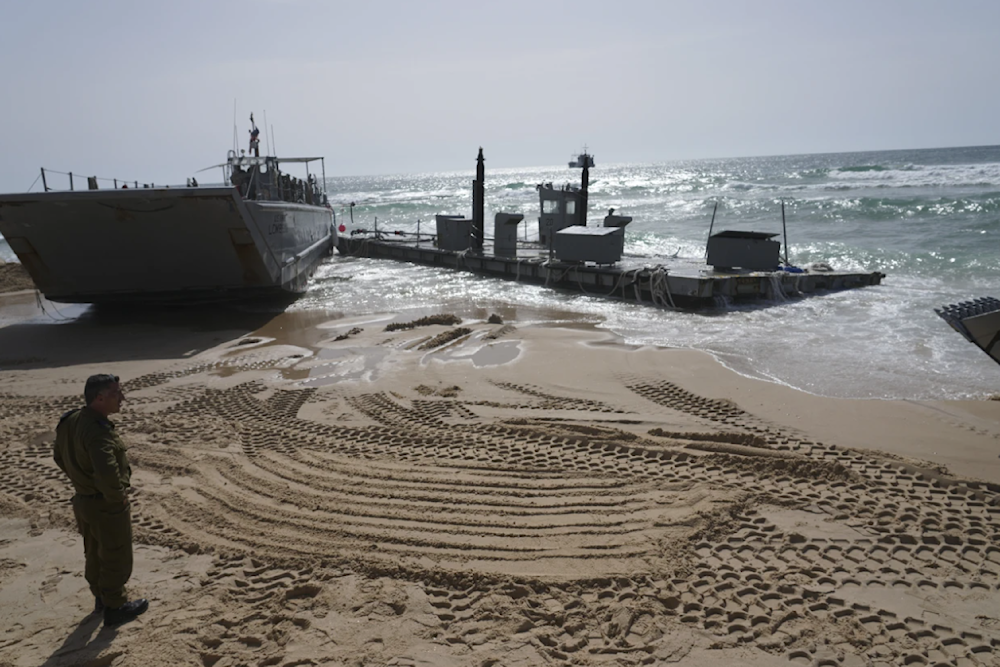US aid pier failed in mission, could be dismantled earlier: NYT
In the latest in a series of setbacks, the US military announced that the floating pier would be towed back to Isdud.
-

A US Army landing craft is seen beached in the port of Isdud on May 26, 2024. (AP)
The $230 million temporary dock created under the guise of transporting humanitarian assistance to Gaza has mostly failed in its goal, according to aid organizations, and operations will most likely be ended weeks sooner than intended, The New York Times reported.
The pier has only been in operation for roughly 10 days in the month since it was joined to the coastline. The remainder of the time, it has undergone a string of setbacks including undergoing repair when severe waves tore it apart, being disconnected to avoid more damage, or being halted due to security concerns.
The pier was never intended to be more than a stopgap solution as the Biden administration urged "Israel" to let more aid into Gaza via land, which is a far more efficient method of delivering help.
However, some American military officials believe that even the modest plans for the pier will fall short as aid groups warn the people of Gaza still face extreme hunger.
Read more: US pier in Gaza 'most tangible symbol for American fecklessness'
Military authorities are already warning humanitarian organizations that the pier might be dismantled as early as next month, a timetable that they believe would put pressure on "Israel" to open more land channels.
In the latest setback, the US military announced that the floating pier will be towed back to Isdud [Ashdod]. CENTCOM claimed that the expected high seas were behind the decision to remove the floating pier from its anchor position in the Gaza Strip.
Sabrina Singh, a Pentagon spokeswoman, said on Monday that the pier might be reattached and assistance supplies might restart later this week.
However, according to Responsible Statecraft, the pier serves as a humanitarian cover for an inhumane policy.
Earlier this month, the Pentagon dismissed social media accusations that the pier was used in an Israeli operation that retrieved four Israeli captives and killed 274 Palestinians.
After the videos surfaced, the US Central Command issued a statement claiming that the pier and "its equipment, personnel, and assets were not used in the operation to rescue hostages today in Gaza."
Arlan Fuller, Project Hope's head of emergency response, stated that a widely circulated picture of "the helicopter taking off from the beach really was contravening the overall use of the humanitarian space," noting that the photograph "muddies the waters" and may put humanitarian workers on the dock at risk.
Senator Roger Wicker of Mississippi, the senior Republican on the Armed Services Committee, called the pier in early June an "expensive experiment" intended to appease the "far-left flank".
Aid workers report that just seven truckloads of aid arrived in Gaza via the pier each day, falling well short of the aim of eventually reaching 150 trucks per day.
According to J. Stephen Morrison, head of the Global Health Policy Center at the Center for Strategic and International Studies, the "volume is negligible," adding that the weather will only "get rougher and rougher."

 3 Min Read
3 Min Read








